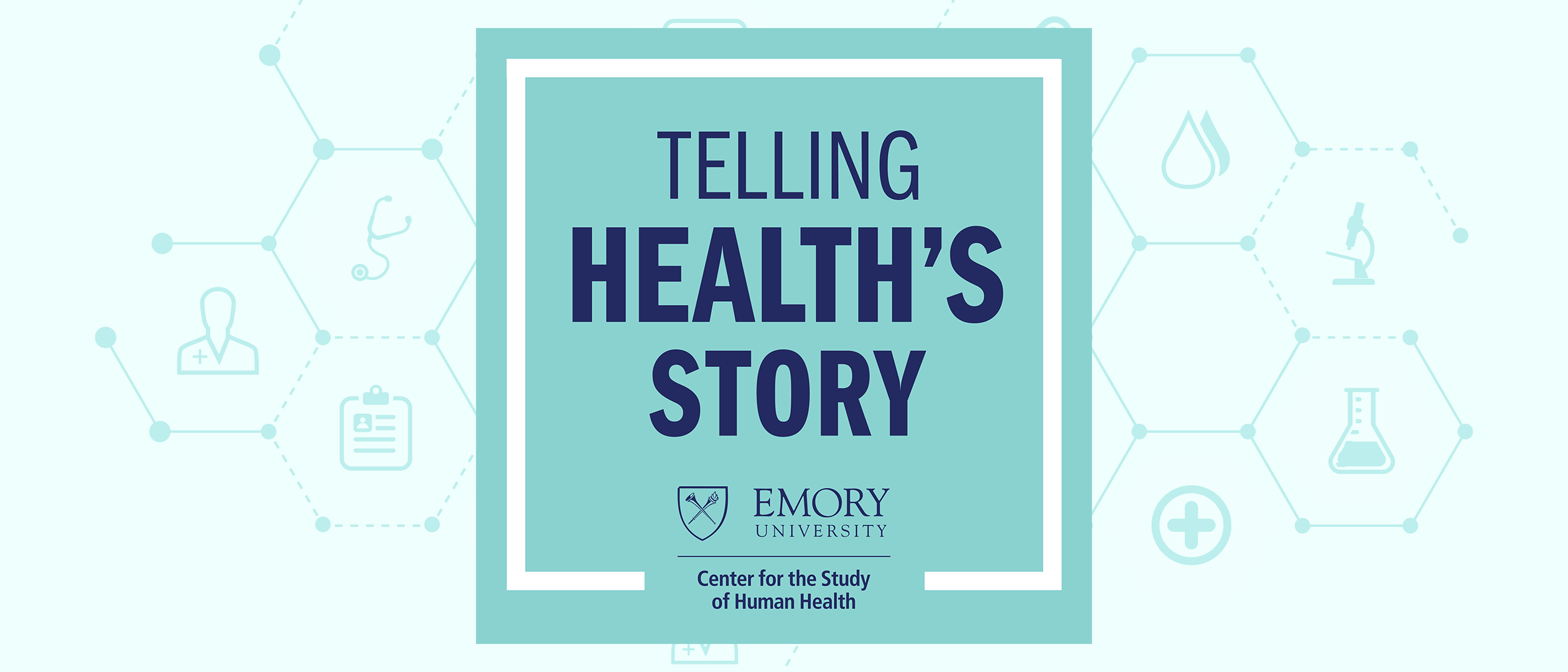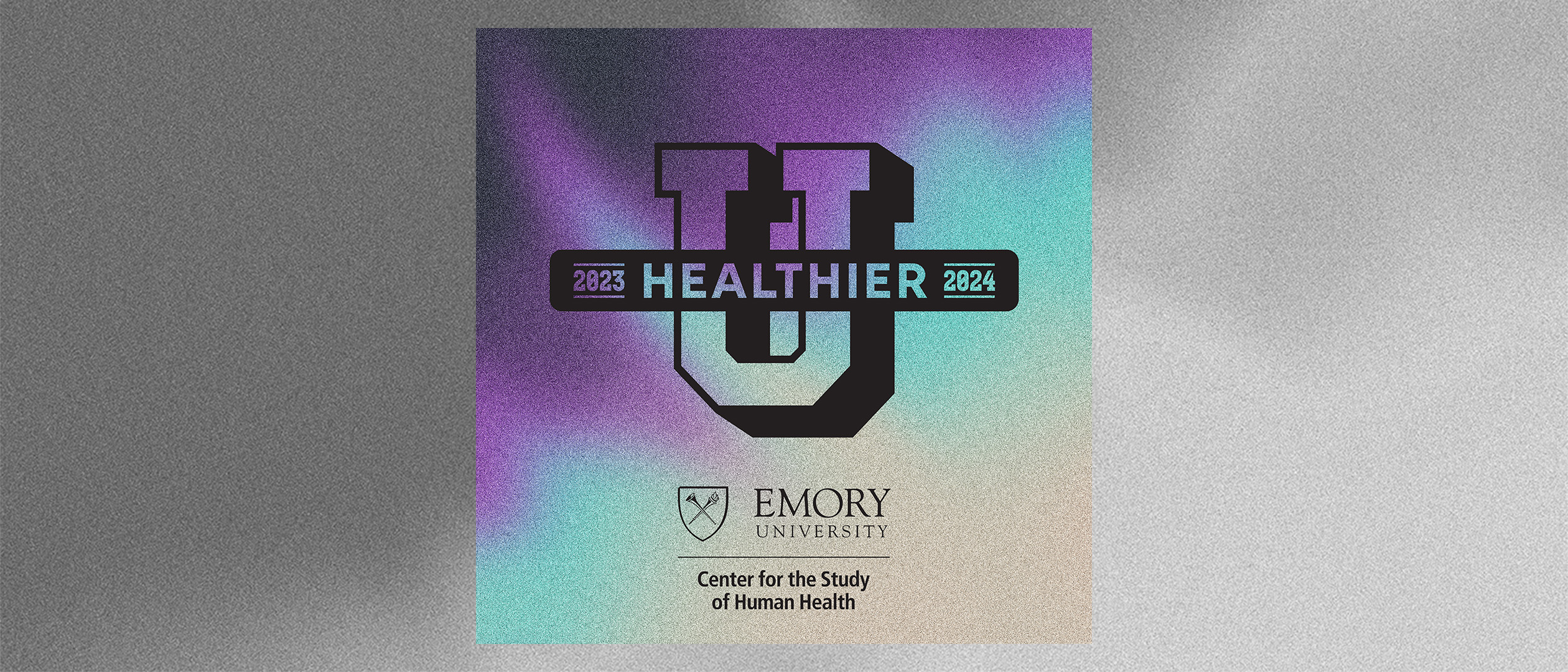Have you ever struggled with your mental health and sought answers for your problems on the internet or social media? If so, this episode is for you, as host Lauryn Palacio dives into the complex practice of self-diagnosis in psychiatry.
News Feature
Higher Learning’s Covid Blame Game
Egan Kattenberg
Emory University decided late what to do about the novel coronavirus: The roughly 7,000-student undergraduate campus in Atlanta didn’t announce its fall-semester plans until mid-July 2020. With classes starting in a month, the school reported, class would be remote. Only first years and a limited number of upperclassmen would be allowed to return.
To diminish the risks of coronavirus spread, the university proposed that any student coming back be required to sign a “Community Compact.” The “Community Compact” calls for students to practice safe behaviors such as social distancing and mask-wearing. If students violated the compact, the school said, the whole University would shut down. That forced the future of the school year on the youngest, least experienced members of the campus community: first years. Upperclassmen, anxious to preserve their college experience, piled on to drive home the point. “First-years, Don’t Send Us Home,” written by the editorial board of the school newspaper in an op-ed/open letter illuminated this wish. The message was clear: If Emory was forced to close its campus, everyone would know the freshman were responsible, and everyone would blame them.
As the coronavirus pandemic has unspooled, that pattern of blaming students has been repeated at campuses across the country. Experts in epidemiology, infectious disease, health behavior, mental health, and disease modeling say that attitude is a mistake. By blaming students for their behavior, universities are setting themselves up for failure. Keeping higher education running in a pandemic, according to researchers, requires compassion and cooperation–and it’s the adults, not the teenagers, who ought to lead the way.
David Paltiel, a disease modeling expert at Yale University, could not agree more. “It’s my job to figure out how to give students the social opportunities that you’re entitled to and to provide you with resources, space, and food,” he says. Instead shaming and blaming have been the method of communication from both university administrators and students. This shaming is counter-productive and actively harmful. Universities and students should prioritize tolerance and university administrators must provide students with a seat at the table.
Public-health expert and Harvard professor Julia Marcus argues against blaming tactics. Marcus says, “Many colleges have taken more of a zero-tolerance approach which we know tends to be counterproductive.” Marcus believes if public health measures are going to be successful, they must come from a place of compassion, not blame. “Shame-inducing and extreme punishment are going to drive students away from public health efforts.” Students had been left in the dark most of the summer, unsure if they would be able to return to campus. Upon returning to campus students were framed by a single narrative: careless 20-somethings are ruining life for the rest of us
Katherine Mangan, a senior writer for The Chronicle of Higher Education, has been covering student blaming since late August 2020, when some University students returned to campus. She says the level of student blaming has never been this widespread. “I have never encountered anything quite to this extent before.” Mangan continues, “I can’t think of any other time when the onus has been so heavy on the students.” Mangan believes most blaming has occurred at flagship universities struggling to contain outbreaks on their vast campuses: “Smaller colleges that have not had the same outbreak have tended to be a little less likely to blame students.”
Syracuse, Purdue, UNC, Penn State have all had administrators call out students for behaving inappropriately. Eric Barron, the president of Penn State, asked students, “Do you want to be the person responsible for sending everyone home?”
Bobby Maldonado and Marianne Thomson, the Chief of the Department of Public Safety and the Dean of Students respectively, at Syracuse University co-wrote an article aimed at a gathering of students on that campus’s Quad. “By now you are aware of the incredibly reckless behavior that took place on the Quad last night,” they scolded. “We will not tolerate anyone putting the health, safety, and well-being of our campus and the Syracuse community at risk.”
Unable to curtail the actions of their students some universities have reversed their decisions to have in-person classes: most notably Michigan State University, Ithaca College, and the University of California-Los Angeles. Approximately, 300 Universities have flipped on their decisions to bring students back in person in favor of online classes. Approximately 200 of those universities have cited public-health emergencies as the reason for the flip. Universities have blamed students for partying and socializing instead of understanding their own inadequacies in protecting students.
However, the blame game does not stop at the administrative level. Students are blaming each other. The editorial board of The Wheel concluded its “Don’t Send Us Home” essay with this admonition: “Don’t bring that on yourself and don’t bring it on the rest of us. You don’t have the right.”
To date, 218 students on Emory’s 7,000-student undergraduate campus have contracted COVID-19–equaling a positivity rate of 0.21 percent. It seems Emory, like many other small universities, has been successful at curtailing the spread of COVID-19 on campus. But to continue this success, student blaming must end. Blaming increases the likelihood of reversing the largely successful public-health campaign.
Mangan agrees, “I think there’s definitively a fear that student blaming is making students less responsive to public health measures because they feel they have been unfairly blamed.” At most universities, students have largely adhered to the guidelines put out by their administrations– but this hasn’t worked. According to Statista data on the percentage of college students abiding by social distancing and hygiene practices, almost all students report following guidelines very closely or somewhat closely. Additionally, data from the New York Times on tracking the coronavirus finds 65 universities have surpassed the 1,000-case mark on their campuses.
Shaming has not worked. It is a powerful condemnation that tells students how to act safely but does not show them. Students have been made scapegoats. But, in a change, scholars nationwide are now calling for student blaming to stop.
In “An Open Letter to University Leadership,” published on the site Inside Higher Ed, Julia Marcus, David Paltiel and more than 100 other scholars call for administrators to be more understanding of students’ difficulties. They write: “Many colleges and universities are requiring students to make radical and unsustainable change in their behavior that go well beyond avoidance of large indoor parties … at the threat of swift and unnecessarily punitive disciplinary action.”
The group agrees students must be held responsible for their actions if they put their communities at great risk, but contend shaming and blaming are not the avenues to keep students responsible: “What we don’t want is for students to not be willing to disclose their behaviors, their symptoms, or their test results, because they’re afraid they’re going to get kicked off campus… Public health interventions are most effective when the communities that are being served are involved in every step of the process.”
Students across the country must be held accountable for their actions but they must also be involved in creating guidelines. Moving on to the spring semester universities must listen and respond to feedback on how their guidelines are affecting students. Resorting to shame and blame to control students’ behavior was a mistake and university administrators must own up.
Emory students have also become more understanding of the difficulties of on-campus life. A recent op-ed in the Emory Wheel calls attention to general COVID blaming. Sophia Ling, a first-year, writes about how shaming only ever creates more division. “Social-media shaming,” Ling writes, “is the quintessential dehumanization machine. You can ruin someone’s life without ever having met them and evoke consequences you didn’t intend.” Shaming needs to stop, its effects are not helpful. Instead, they are actively harmful.
Understanding and tolerance are essential when dealing with university students. Emory students, and students across the country, have suffered from a semester unlike any other. A semester largely spent in the seclusion of their own homes in front of computer screens. All the while blamed for their nerve. Until this nightmare comes to an end, students and administrators must work together to improve the spring semester.
This improvement comes in prioritizing wholistic well-being rather than simply battling coronavirus. The WHO defines health as, “not simply the absence of disease or infirmity, but a state of complete, physical, mental, and social well-being.” Universities have largely done while battling coronavirus but have failed miserably to supply their students with a “state of complete, physical, mental, and social well-being.”
Moving forward, in addition to having a seat at the table, students must have greater flexibility in taking classes. Not necessarily hybrid vs. online vs. in-person, but the opportunity to change their classes from graded to pass/fail. They must feel comfortable coming forward to benefit the public health response. Finally, students must regain some feeling of control over their lives.
Mangan agrees, “I think going forward it’s clear that universities must provide a lot of flexibility in the kinds of classroom experiences that students can have.” She continues, “But, in order for students to be successful, you have to make sure students all have access to what they need to be successful.”
The fact of the matter is most universities have not been able to provide students with all they need to be successful. Students have been placed between a rock and a hard place all the while yelled at to stay in that position. Please let us stop the yelling, stop the blaming, and work together to make the next semester successful.
Student Highlight: Egan Kattenberg graduated from Emory University in May 2021 with a double major in Anthropology and Human Health on a pre-public health track. Over the summer, he was a tennis coach at the Druid Hills Country Club. In Fall 2021, he will begin working as an ELA mentor at Sylvan Hills Middle School. He wrote this piece for HLTH 385W in Fall 2020 in his senior year.

